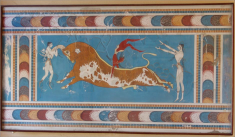The poster session will be held on Monday 26 August 2019 between 19:30 and 20:30 in the lobby of OAC. There will be 30 poster boards (they can be used on both sides hosting maximally 60 posters, dimensions: 1.40x1.40m and 0.90x1.40m).
The poster presentations will be published in the proceedings of the conference after a peer review with the same length as the oral presentations. In addition a Honorary Committee will award the best poster author. It will be supported by Universe Journal, Basel, Switzerland
To further encourage participation a wine tasting party will be associated with the poster session.
Note: We kindly ask all participants to bring a bottle of typical wine or another traditional beverage of their country to share it during the poster session.
The best talk/poster will be awarded a prize (500 CHF) from journal Universe, MDPI.
1) Andrés Camilo Granda Arango: Asymptotic quantum mechanics: Is the incomplete Bohr’s correspondence principle?
2) Avishy Carmi: How quantum mechanics solves the barber paradox.
3) Thibault Chevalérias: Search for the production of four top quarks using the ATLAS detector.
4) Sabina Anna Czekierda: Measurements of single diffraction using forward proton tagging at the ATLAS detector
5) Alexandra Friesen: Phase diagram and strange matter in SU(3) PNJL model
6) Aidar Ilyasov: Machine Learning approach on event classification in liquid noble gases
7) Lukas Kramarik: Reconstruction of D0 mesons in d+Au collisions at √sNN=200 GeV by the STAR experiment
8) Yurii Kvasiuk: UrQMD distributions and fluctuations in baryon subsystems at fixed total net baryon number: simulations vs analytics
9) Frederic Lassiaille: Gravitational Model of the Three Elements Theory: formalizing
10) Maria Lavrova: The TUS space experiment
11) Antonios Leisos: Studies using Optimal Observables for the measurement of the anomalous quartic gauge couplings
12) Nikita Levashko: Constraints on DM scattering cross section in the EFT framework in DEAP-3600 experiment
13) Alena Loesle: Test of CP invariance in vector-boson fusion production of the Higgs boson using H -> tau tau decays at the ATLAS experiment
14) Yury Lozeev: Electrodynamics simulation and thermal analysis results for the normal conducting accelerating structure with RFQ for the CW linear accelerator LINAC-100 for mega-science project DERICA
15) Yury Lozeev: Beam dynamics simulation results for the normal conducting accelerating CW RFQ for the linear accelerator LINAC-100 for project DERICA
16) Tatyana Lozeeva: Beam dynamics simulation for the accelerator-driver LINAC-100 for DERICA project
17) Sergey Morozov: Event centrality determination for ion-ion collisions with forward hadron calorimeter at BM@N experiment
18) Stavros Nonis: A semi-autonomous RF detection system for high energy showers
19) Yuta Okazaki: Searches for high-mass diboson resonances with the ATLAS detector
20) Sergey Polozov: Progress of the development and establishment of the production of superconducting cavities in Russia and Belorussia
21) Mikhail Rumyantsev: Time of Flight system of the BM@N/NICA experiment. Performance and particle identification results
22) Rulin Xiu: Derivation of Vacuum Energy and Cosmological Constant Using Holographic Principle and String Theory
23) Nazar Yakovenko: The concept of induced surface and curvature tensions and a uni?ed description of the gas of hard discs and hard spheres
Judging committee
Prof. Laszlo Csernai, University of Bergen,
Prof. Paul Frampton University of Salento,
Dr. Rainer Mankel DESY
Winners
1-st place, Alena Loesle (Albert Ludwigs Universitaet Freiburg) Test of CP invariance in vector-boson fusion production of the Higgs boson using H-> tau tau decays at the ATLAS experiment
2-nd place, Tatyana Lozeeva (NRNU “MEPhI") Beam dynamics simulation for the accelerator-driver LINAC-100 for DERICA project
3-rd place, Mikhail Rumyantsev (JINR) Time of Flight system of the BM@N/NICA experiment. Performance and particle identification results
